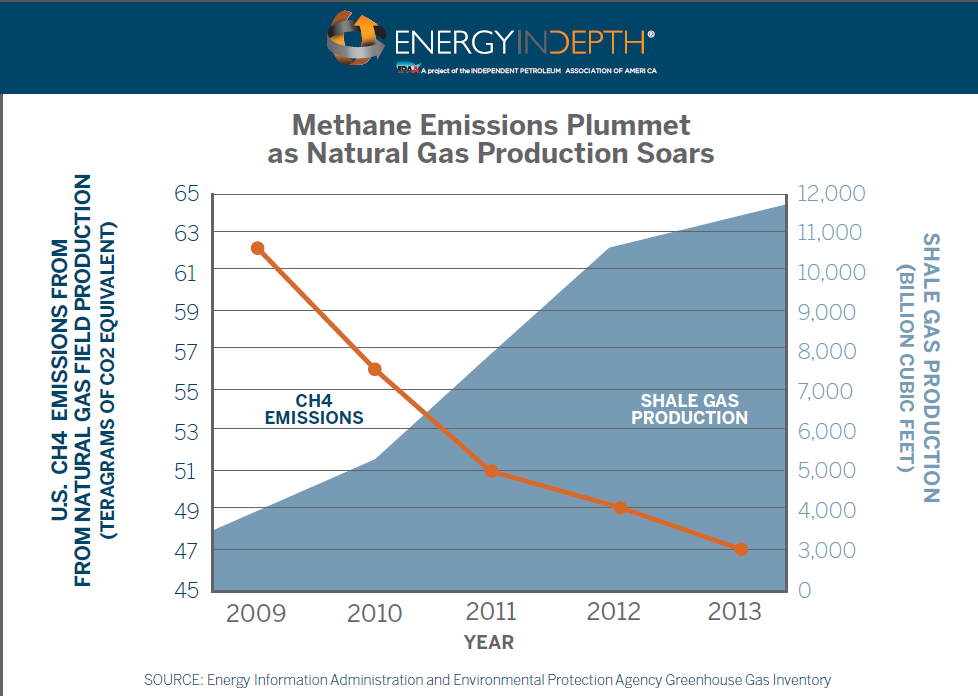Fact: Methane emissions extremely low, even as natural gas production skyrocketed
Myth: Methane emissions are increasing due to natural gas production
Several recent studies have found that methane emissions from natural gas systems have remained low even as natural gas production has skyrocketed. Research from the U.S. Environmental Protection Agency (EPA), the Environmental Defense Fund (EDF), the University of Texas, University of Colorado at Boulder, the National Oceanic and Atmospheric Administration (NOAA) and others have all concluded that methane leakage rates from natural gas systems are extremely low. Furthermore, a study published earlier this year by Harvard University said researchers could NOT attribute the methane emissions they measured to oil and natural gas resources.
In Texas, the Environmental Defense Fund’s research in the Barnett Shale found an average methane leakage rate of 1.5 percent of natural gas production. EDF has stated that natural gas is advantageous for the climate “as long as leakage remains under 3.2%.” EDF’s findings in the Barnett Shale are well below this threshold.
Nationwide, according to the EPA, methane emissions from oil and natural gas exploration and production operations are about 1 percent of the U.S. total and methane emissions from natural gas production have decreased by 38 percent since 2005. During that same timeframe, natural gas production increased by 26 percent.
The chart below illustrates how emissions have plummeted as natural gas production skyrocketed.
The above is adapted from research analysis provided by Energy in Depth.
Learn more:
Top Methane Studies Confirm Low and Dramatically Declining Emissions
New Barnett Shale Study Further Confirms Low Methane Leakage Rates
Latest EDF Report Fails to Acknowledge Low and Rapidly Declining Methane Emissions


